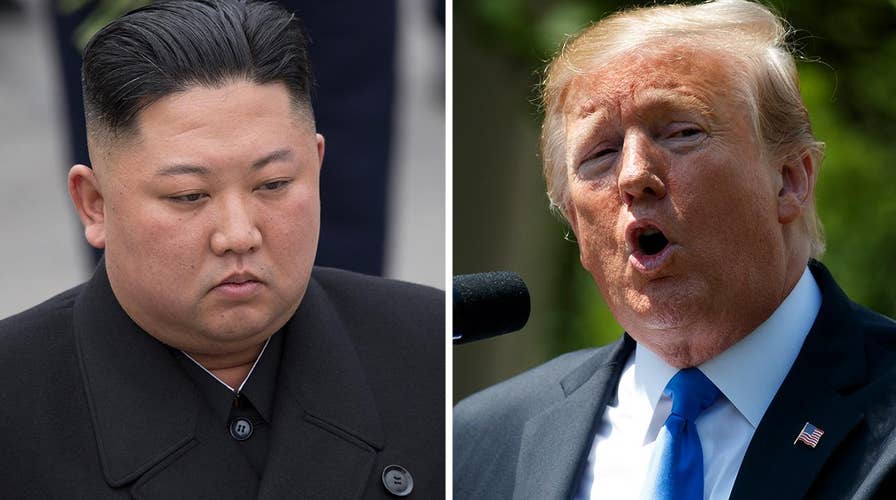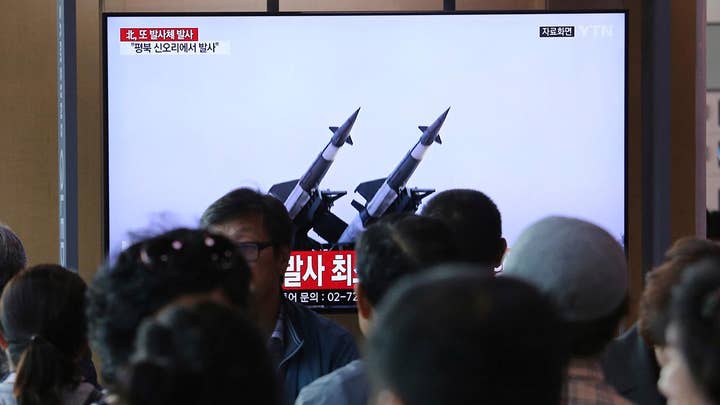President Trump tweets ‘deal will happen’ after North Korea test fires short-range projectiles
Former Naval Intelligence Officer John Jordan reacts on ‘ANHQ’
According to an old adage (it’s old because I made it up, and I’m getting old), “If your negotiating strategy with North Korea is based on knowing what the North Koreans are thinking, you are going to fail.” The regime remains as inscrutable and opaque as ever.
That said, the Trump administration has to ask itself what to make of Pyongyang’s recent series of provocative actions, including another missile test. Believe it or not, though, the best answer might be: Why does it matter?
On the surface, these actions seem to be finely calibrated. They’re provocative enough to get Washington’s attention, but not threatening enough to provoke a strong U.S. response.
The DPRK may still be clinging to the belief that Trump needs a deal for his re-election. It might be hoping these actions will cause him to come scurrying back to placate them.
Certainly, North Korean officials feel their demonstrations are putting pressure on the South Koreans. President Moon’s popularity is declining. Perhaps they think he will do more to pressure the U.S. to take off, well, some of the pressure.
All of this, of course, should be taken simply as speculation. No one is living rent-free in the leader of North Korea’s head. Kim has his own ideas about how to deal with the West.
That’s why from the start, Trump’s pressure campaign and reliance on deterrence and missile defense made sense. The U.S. strategy protects us and our allies. We’re not dependent on Kim’s course to protect our vital interests.
Thus, the most important step to take in response to Kim’s latest steps is to keep the pressure on. Wisely, that’s what the administration looks to be doing.
It’s also understandable that Trump insists on leaving the way for negotiations to denuclearization open. That’s a deal worth having. The U.S. loses little by keeping the diplomacy option open.
Further, despite all the doubters and the apoplectic press in Korea and the U.S., the fact remains that the allies are standing together. Washington, Seoul, and Tokyo are of one mind on the ultimate goal here.
CLICK HERE TO GET THE FOX NEWS APP
The U.S. also isn’t complacently waiting. Washington has an ongoing initiative; they just aren’t telling us what it is. Meanwhile, the Japanese prime minister, with U.S. backing, has also agreed to meet with Kim.
The smart play now for the U.S. is don’t panic. Keep up the pressure campaign. This not only sends a strong signal to North Korea but also a message to Iran as well: The U.S. won’t concede something for nothing, least of all when the other side pitches a fit.










































